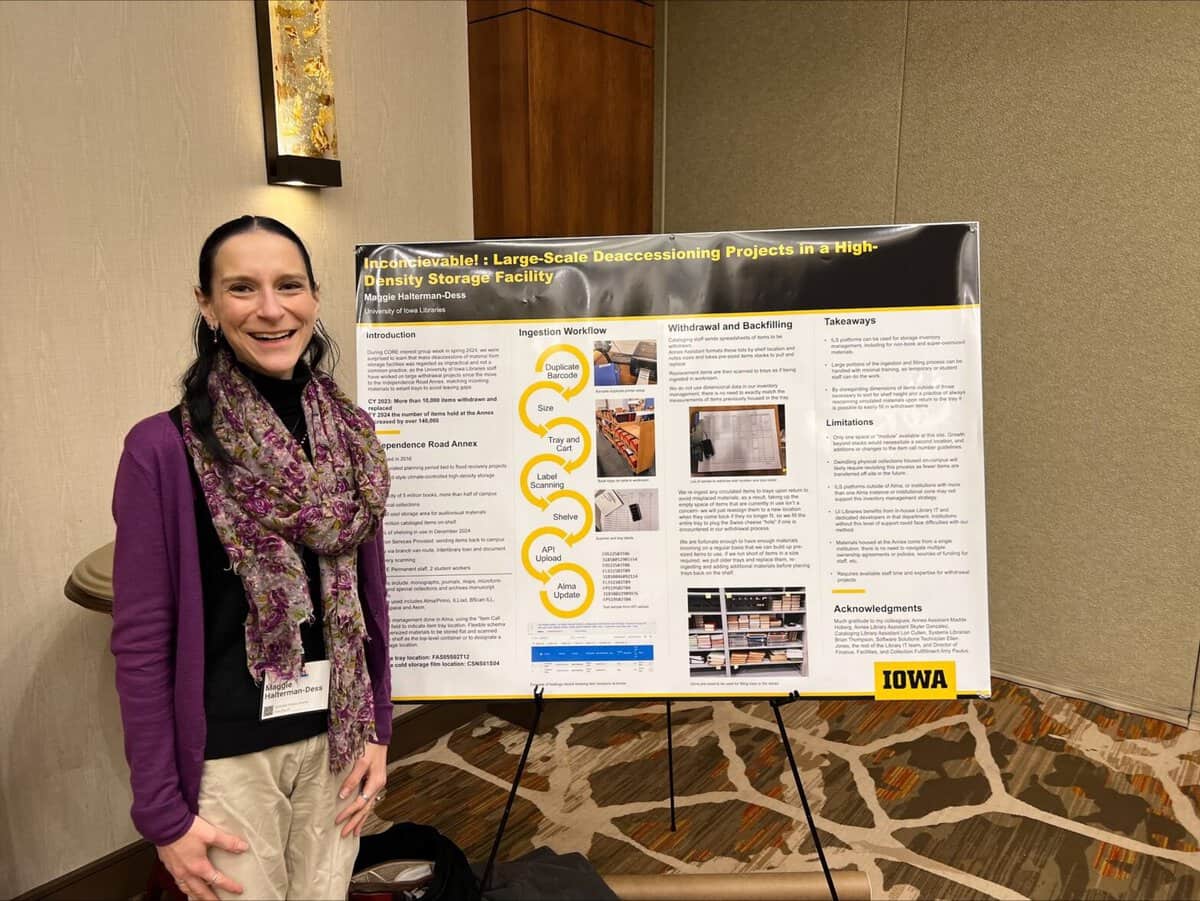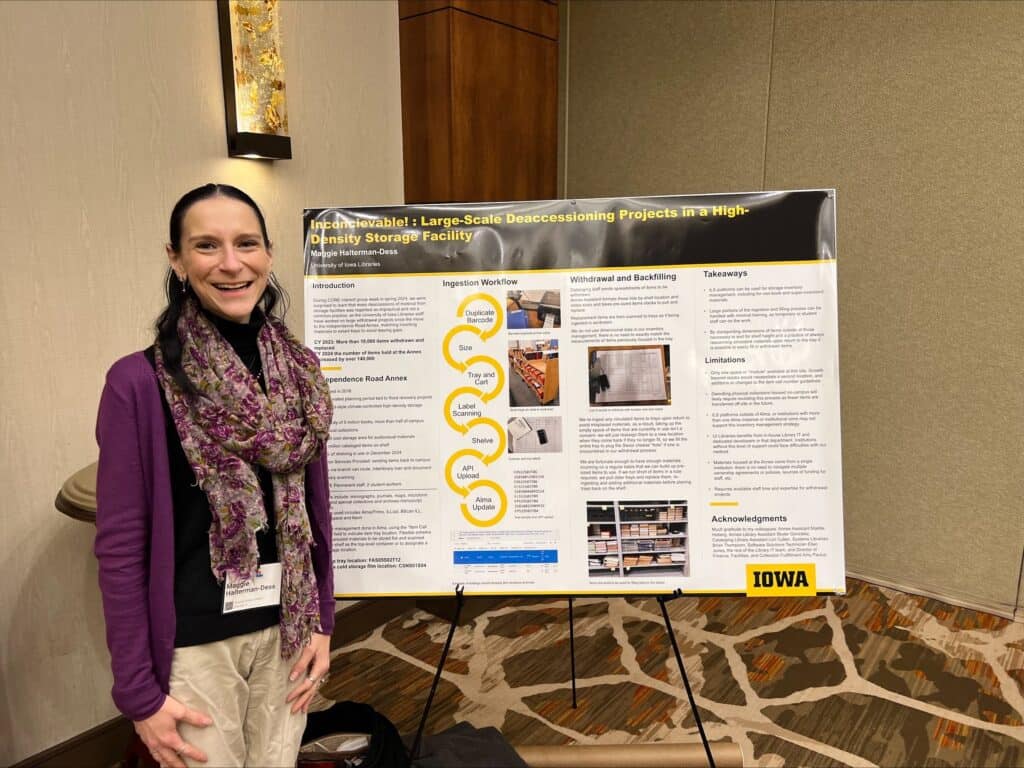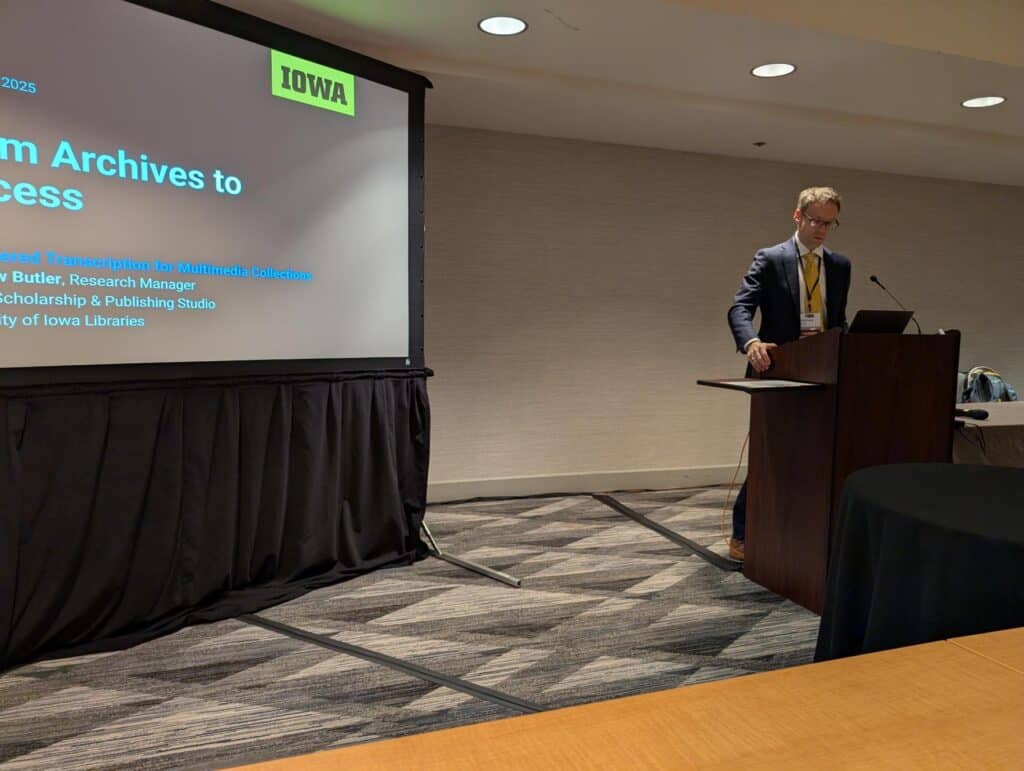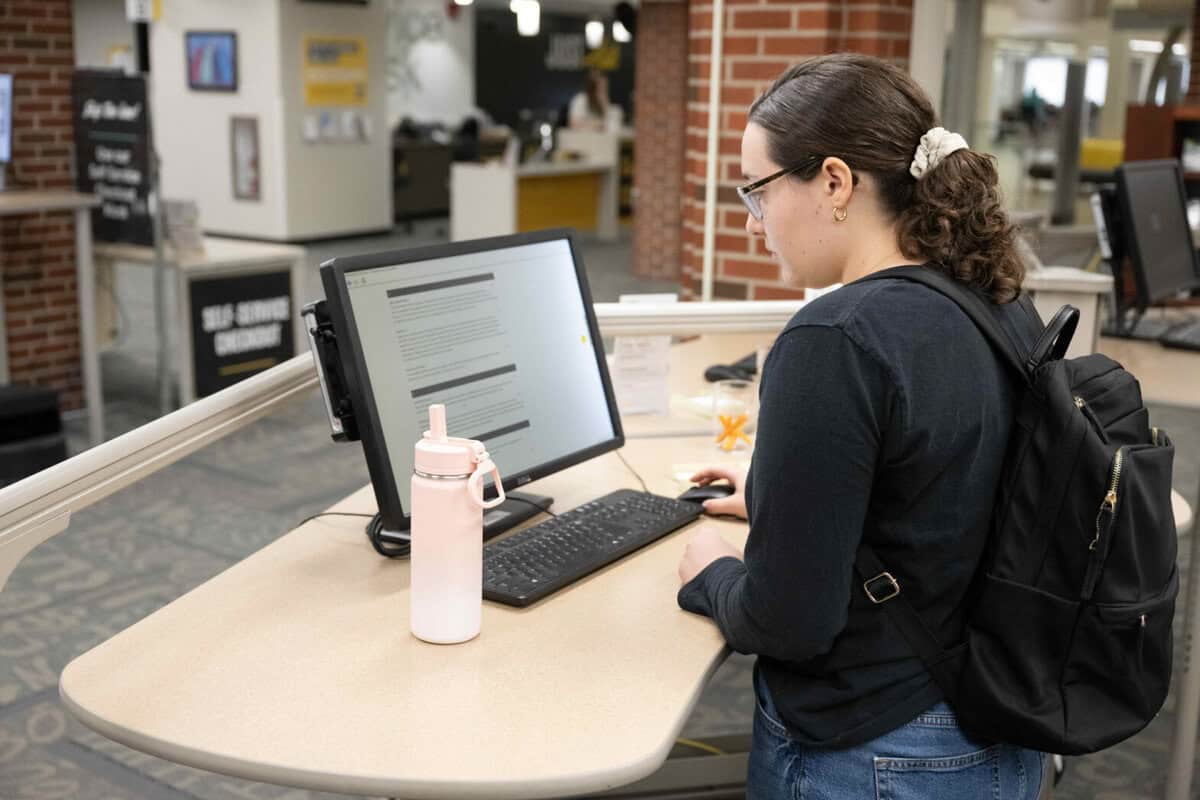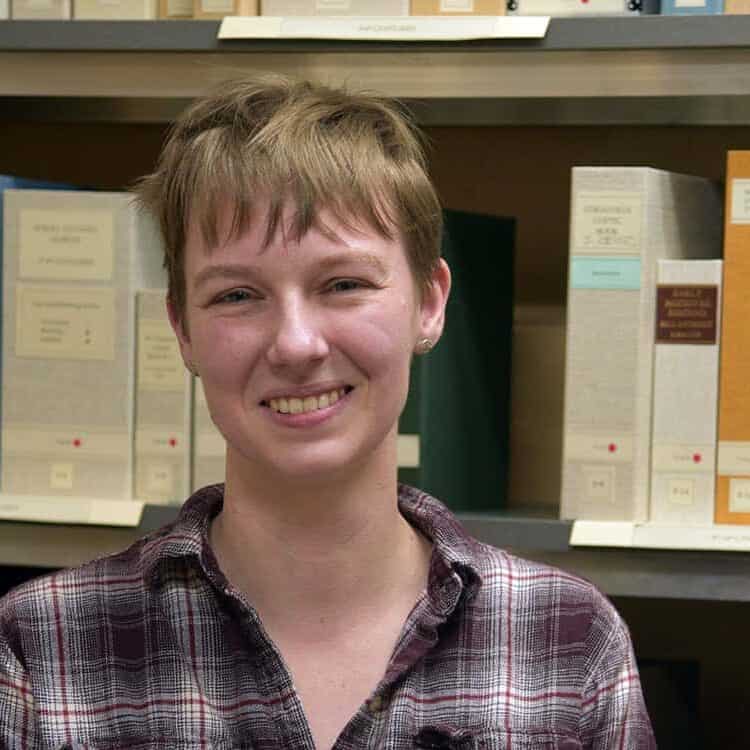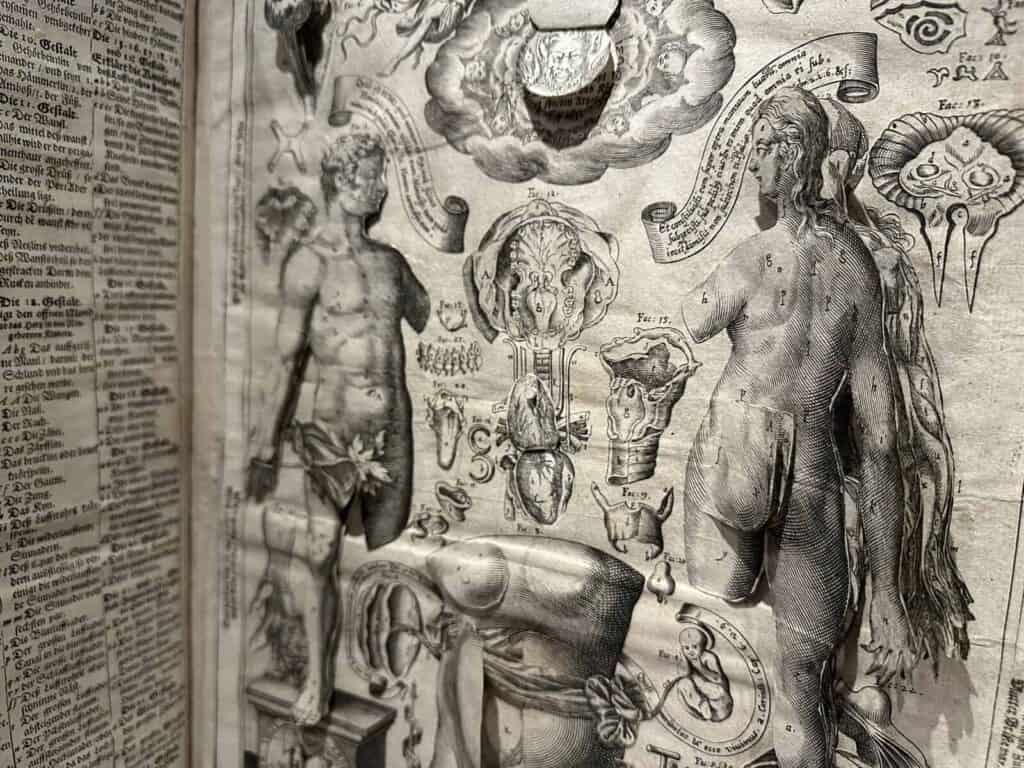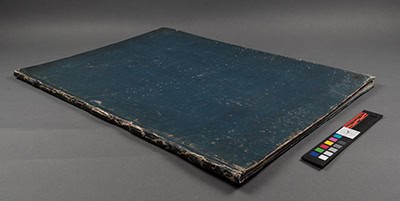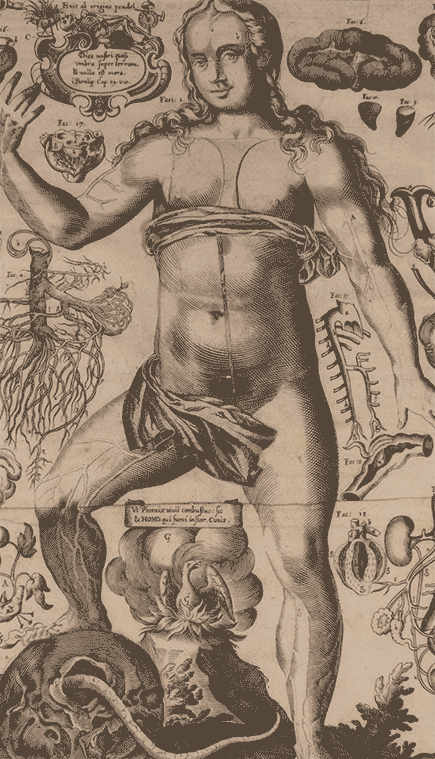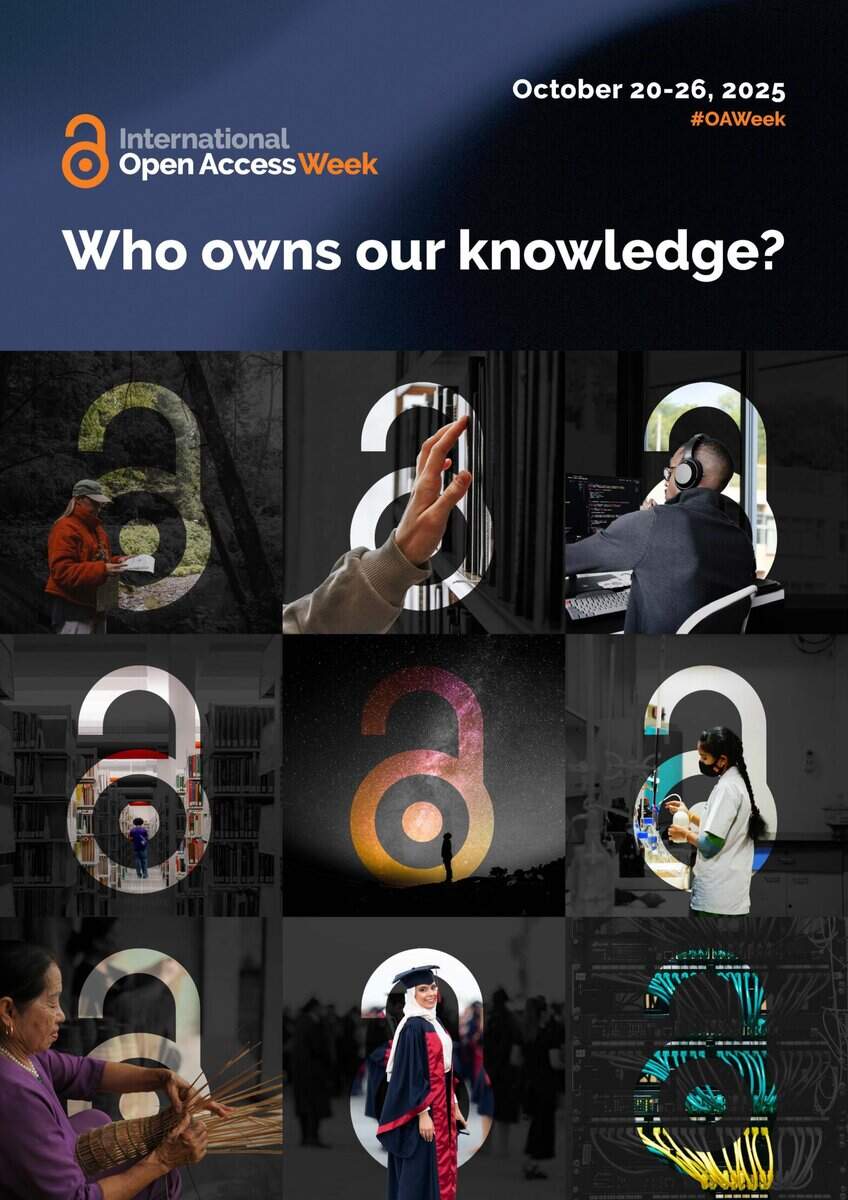Student employees are a crucial part of the ecosystem at the University of Iowa Libraries. Not only are staff able to pass on expertise directly through hands-on learning, but students can contribute their ideas to keep the Libraries relevant and strong for the next generations. Student employees complete a wide variety of tasks, including directing users to needed resources, caring for collections, and processing material.
For the 2025–2026 academic year, 15 undergraduate student employees have been awarded scholarships in recognition of their work. Read below to get to know them and learn about their Libraries experience and its impact on their future in their own words. If you see the following outstanding students working at the Libraries, be sure to congratulate them and thank them for their efforts!
You can learn more about UI Libraries student scholarships on the Libraries website.
Judy and Mike Greer Scholarship in memory of Mary E. Greer
Samantha Burds
Hometown: Epworth, Iowa
Major: Bachelor of Arts in English
“The friendly and open work environment at the Libraries has given me the opportunity to ask questions that help me learn about my job. Libraries are centers for information, and having more information as an employee makes me better at doing my job and giving that information to others.”
Kaleb Schlatter
Hometown: Runnells, Iowa
Major: Bachelor of Arts in history with minors in Arabic studies and cinematic arts and a Certificate in Jewish Studies
“My work at the Libraries has strengthened my ability to draw on its websites and digital and physical archives, which has improved the quality of my regular academic work and helped me develop research interests. Working at the Libraries has also provided routine opportunities to practice and refine interpersonal communication skills for clarity and efficiency. Given that I intend to work in archives, academic history, or in legal spaces, the research skills, institutional knowledge, and communication skills I have developed while working at the Libraries have prepared me with the tools to adapt to new information ecosystems.”
Benton Family Music Library Student Employee Scholarship
Lydia Maier
Hometown: Madison, Wisconsin
Major: Bachelor of Music in organ performance
“Working at the Libraries has helped me strengthen several professional skills, especially time management and working with people. Balancing a heavy course load, practicing, and working at the Rita Benton Music Library have taught me how to prioritize my work, stay organized, and manage my time efficiently. I’ve also become more personable and confident in helping people, whether I’m answering questions, helping someone find a score, or simply being welcoming at the front desk.
Something that has surprised me about working in the Music Library is the call number system. Before working at the Libraries, I didn’t know how to locate books or scores with the number because I didn’t understand how it worked. I have discovered how thoughtful and organized the system is and it has been super helpful to utilize!”
Brett Tomkins
Hometown: Dubuque, Iowa
Major: Bachelor of Arts in music education and Bachelor of Music in composition studies
“Keeping account of scores and working at the Music Library helps me learn to stay organized. It also gives me the chance to compose and arrange when I don’t have any tasks, which directly impacts my career.”
Bentz Family Student Employee Scholarship

Sadie Crandall
Hometown: Marion, Iowa
Major: Bachelor of Arts with a triple major in anthropology, classics, and religious studies with a Museum Studies Certificate
“My work at Special Collections and Archives has helped me develop not only professional skills with archiving software and physical handling techniques, but it has also allowed me to build professional relationships within a community of like-minded archivists that I love and cherish. These skills have been nurturing my knack for leadership and my ability to approach difficult archiving problems in the collections and library spheres. I am passionate about my work and my impact on the institution and community that I serve and am constantly looking for ways to improve these skills and small ways to help in the library in order to prepare for a future in collections moving forward.”
Brylee Hoeg
Hometown: Grundy Center, Iowa
Major: Bachelor of Arts with a double major in history and ancient civilizations and a minor in anthropology and a Museum Studies Certificate
“Through my work at the Libraries, I have learned how to communicate with a large group of people, and how to meet the differing needs of these people. In my future career I am going to see people every day who will need specific or different things from me, and I will need to know how to effectively and efficiently fix problems and help individual people.”

Ava Stork
Hometown: Ankeny, Iowa
Major: Bachelor of Arts in environmental policy and planning with a minor in urban studies and a Certificate in Sustainability
“Through working as a student employee of the Libraries, I have greatly improved my communication and teamwork skills through collaborating with other students and staff and working together to complete various projects. In relation to my future career path as an urban planner, both of these skills are an essential part of plan completion and community outreach.”
Tatiana Thomas
Hometown: LaGrange, Illinois
Major: Bachelor of Arts in English and creative writing
“While working at the Art Library, I have learned to balance a multitude of tasks. I will forever and always be so surprised at how much the Art Library feels like a home. Jim (Hall, library assistant and student supervisor) and Patricia (Jimenez, director) are the most welcoming people I have ever encountered, as well as respectful and professional.”
UI Libraries Student Employee Scholarship
Brianna Bowers
Hometown: Cypress, Texas
Major: Bachelor of Arts with a double major in computer science and English and creative writing
“I’ve learned how to balance my time between different independent projects. Knowing how to do this will be useful to me since I plan to go into a career that involves lots of independent projects alongside self-development.”
Abigail Kunzman
Hometown: Hartley, Iowa
Major: Bachelor of Science with a double major in health and human physiology
“Something that surprised me about working at the Sciences Library is the connections that I’ve made with the staff and students. What started as just a campus job has allowed me to get to know a great staff that always makes me feel supported and part of a small community. Additionally, the role of a student mentor itself is extremely rewarding. I get to witness the personal growth and increased confidence in the learning of students who I have had the privilege to work with. Every student learns differently and at a different pace, teaching me how to adapt quickly and adjust my explanations to what they will be most receptive to. I have also learned how vulnerable it can feel asking for help, so I make it my goal to create a supportive environment where students feel comfortable asking questions and working through difficult concepts. The patience and communication that I’ve developed while working at the Sciences Library will not only strengthen my abilities as a future physician but will allow me to better connect and support the patients I will one day care for.”
Kethia Mulonda
Hometown: Des Moines, Iowa
Major: Bachelor of Science in Engineering in civil engineering
“Working at the Lichtenberger Engineering Library has taught me a great deal about communication, patience, and problem-solving. Every shift involves interacting with different students, faculty, and staff, and I’ve learned how to clearly explain information, walk someone through a process, and stay calm even when things are busy. I’ve also improved my ability to troubleshoot issues, whether it’s technology problems, equipment questions, or finding the right resource. These skills will carry directly into my future career. Civil engineering requires strong communication, teamwork, and the ability to think through challenges in real time. The Libraries has been a great place to develop those habits early.”
Sumeyo Noor
Hometown: Sioux City, Iowa
Major: Bachelor of Science in neuroscience
“Coming in as the only neuroscience student, I didn’t expect to connect with so many of my other co-workers, who were mostly in the Tippie College of Business. However, I’ve made lifelong friends here at the Business Library and every day I learn something new from everyone who works here. It feels like a close-knit family.
The Business Library has also prepared me for handling professional encounters and confrontation. I think these skills will help me in my future studies as a med student and hopefully one day as a doctor. Things like being able to talk to anyone and handle conflicts are important not only for my specific area of study, but for health care professionals in general.”
Kaylee Olson
Hometown: Sioux City, Iowa
Major: Bachelor of Arts with a double major in psychology and criminology, law, and justice
“My work at the Libraries has helped me develop important professional skills like strong communication and problem-solving skills by helping patrons, attention to detail through tasks like shelving books and closing, and time management skills by balancing work at the Libraries with a full academic schedule. These tasks taken together have helped me develop a stronger work ethic, and I feel confident using these skills in tasks that will carry into any future career.
I was surprised at how often I actually looked forward to going to work at the Libraries. I often feel much more grounded, even on the most stressful days, after a shift. It has been a great place for me to make crucial connections and grow as a person.”
Steven Siegel
Hometown: Van Meter, Iowa
Major: Bachelor of Science in biology
“I have learned a lot of professional communication skills that have already begun to serve me well in my future career. I am able to efficiently communicate and plan different projects with my coworkers and management.”
Jillian Witt
Hometown: Queens, New York
Major: Bachelor of Arts in English and creative writing
“The main professional skills I’ve learned in my time here has been patron interaction and working with a team, which will be crucial skills in any kind of work environment. As I am considering going into academics, a useful skill I have learned at the Libraries has been researching and finding materials related to a specific subject. I am also considering going into library sciences and learning how to navigate the Library of Congress Classification system has been a valuable skill.”























